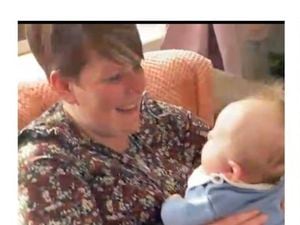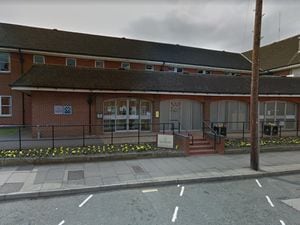Ranjit speaks out on sight loss stigma in minority communities
The stigmas and misconceptions about sight loss in the BAME community are being addressed by a Black Country charity.

Beacon Centre for the Blind in Wolverhampton was first alerted to the issues faced in the different communities by Ranjit Boparai, who volunteered at the centre after being referred there himself.
Ranjit first noticed there was something wrong with his eyesight when he was 35 and an inherent gene meant he would develop Retinitis Pigmentosa (RP), a condition which eventually leads to becoming fully blind.
After losing his job and becoming virtually housebound due to losing up to 98 per cent of his eyesight, Ranjit sought to improve his situation and asked Wolverhampton Council for help, with their team referring him to Beacon.
He said: "Since coming here, I think my confidence has improved greatly. It was at the lowest of the lows after losing my job and sitting at home, with my health suffering and everything seemed to be going wrong for me, so coming here once a week helped my confidence to grow as I saw what was going on in the centre."
Ranjit also had to contend with the reactions from the Indian community to his disability, both at home and back in India.
He said: "The stigmas within the Indian community are some of the beliefs that come through the generations from our elders, not as much in the UK, but there’s a lot of it in India.
"Some of the beliefs are if you have a disability, you’ve been punished for some reason or for something you’ve done in your past life. They might look at you or stay away from you, distance themselves away from you like it’s a catchable disease.
"They’ll use common words about you like “bechara”, which means helplessness and it’s those sorts of beliefs that makes them think you’re being punished for something in a previous life, like God's punishing you.
"My belief is that God doesn’t punish you and we’re all put here on this planet for a purpose, and the role I’m doing now may be that exact purpose."
Ranjit was appointed to the role of BAME officer at Beacon after bringing to the attention of the centre how few members of the Asian community were using the services.
He said: "I did realise it when I started at Beacon that there were a lot of people from the BAME community using the facilities, but there were very few Asians and I started to wonder why our community wasn’t using the services on offer. I drew on my own experiences in regards to isolation and that was the reason I brought it forward to Beacon and it’s most likely why I was given this role as they realised I had a point and something needed to be done about this.
Kam Cheema, Communications manager at Beacon, spoke about the work the centre was doing and the example that Ranjit has set in leading the project.
He said: "There isn’t a specific aim or target, but the overall arching aim is staged, so we want to, first of all, establish to the BAME community that Beacon is here to help support you.
"We want to spread the word around sight loss and make people aware, make people in the BAME community aware about sight loss and give people options. We’re aware that these cultural understandings have been around for many years, coming from people’s backgrounds in specific communities, so we’re not looking to tell people they’re wrong, but rather we’re trying to say instead that these are the reasons why we do what we do and give options to help support people.
"We hold Ranjit as a shining example of what you can achieve. The reason he’s doing his job is because he’s overcome a lot of difficulties, coming from a background where he lost his sight later in life, so he understood life before and understands what life is like with, so he can speak on both sides of the coin and he can appreciate why people might have certain views."
Ranjit has a message for anyone looking for support who might consider going to Beacon.
He said: "Give this a try and move away from some of the beliefs that are out there and give that person support and help and encourage them to get out and learn something that will help you later in life as that will help you later in life."





